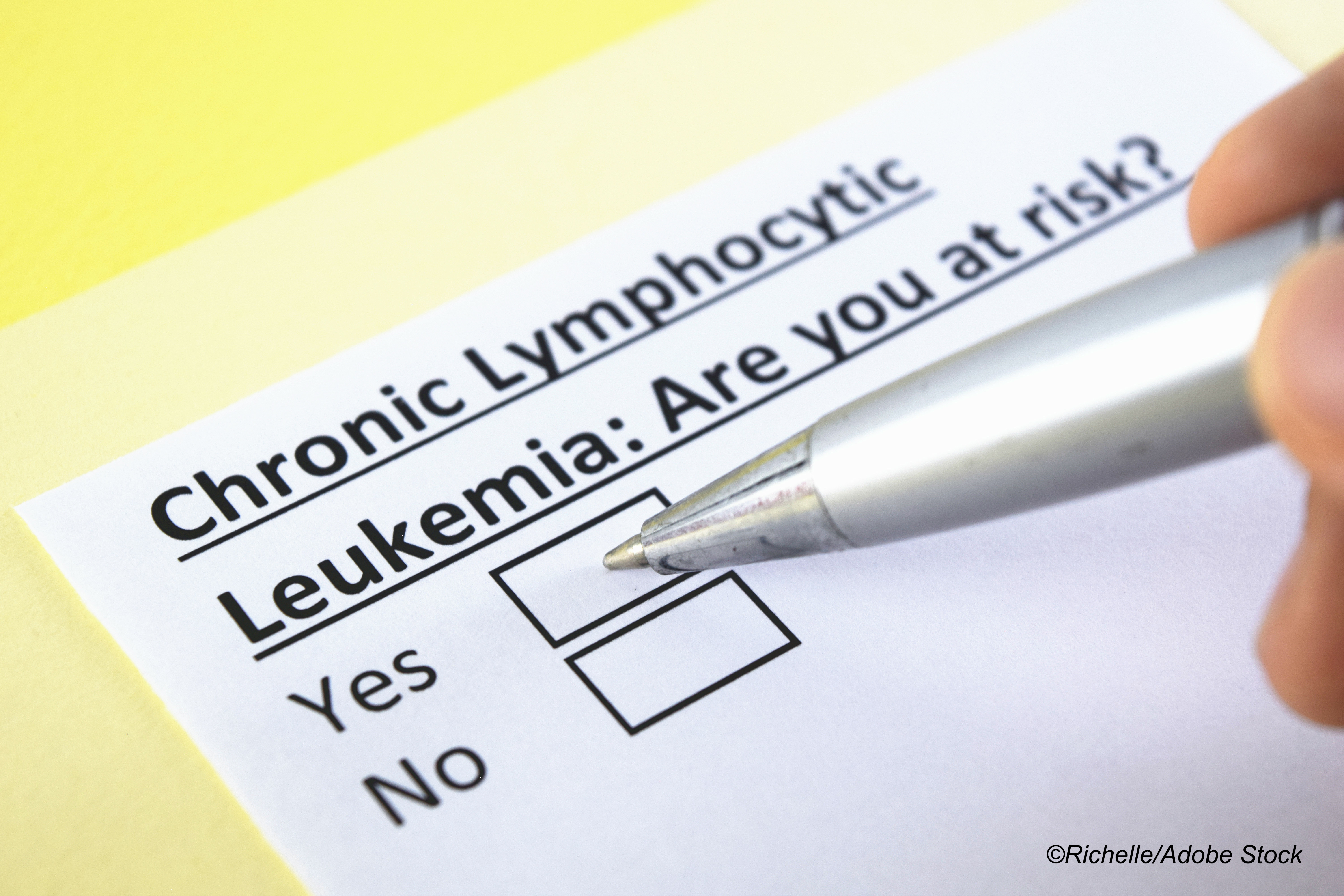ATLANTA—The novel Bruton’s tyrosine kinase (BTK) inhibitor pirtobrutinib shows remarkable activity among patients diagnosed with chronic lymphocytic leukemia (CLL), with more than 90% of patients gaining clinical benefit from treatment in early studies, researchers reported here.
Of 252 patients who had progressed despite previous BTK therapies, 68% showed objective responses to treatment with this investigational agent, while another 25% achieved stable disease, reported Anthony Mato, MD, a leukemia specialist physician at Memorial Sloan Kettering Cancer Center, New York City.
“Pirtobrutinib demonstrated promising efficacy in heavily pretreated CLL/small lymphocytic lymphoma patients following multiple prior lines of therapy,” Mato said in his oral presentation at the 2021 meeting of the American Society of Hematology, “including a covalent BTK inhibitor and a BCL2 inhibitor, and in patients with BTK cis481 mutations.”
He added that the results of the phase I/II clinical trial demonstrated that “pirtobrutinib was well tolerated and exhibited a wide therapeutic index.”
The patients in the BRUIN trial were eligible to receive pirtobrutinib if they were adults with an ECOG performance status of 0-2 and had been diagnosed with CLL or another B-cell non-Hodgkin’s lymphoma. All patients were required to have active disease, be in need of treatment, and have undergone previous treatments. In fact, all patients had been previously treated with a BTK inhibitor, 88% with an anti-CD20 antibody agent, and 79% with chemotherapy. Overall, the median number of previous therapies was three, ranging from one to 11, Mato reported.
Two patients in the study achieved complete responses, 137 achieved a partial response, 32 achieved partial response with rebound lymphocytosis (PR-L), and 62 patients had stable disease.
Among the patients who had a median of three lines of therapy before entering the BRUIN trial, the median progression-free survival had not been reached after a median 9.4 months of follow-up. Among those patients who had a median of five previous therapies, the median progression-free survival was estimated to be 18 months, Mato said.
In commenting on the study, session moderator Christopher Pleyer, MD, assistant research physician at the National Heart, Lung, and Blood Institute, Bethesda, Maryland, said, “We are excited about pirtobrutinib because it looks like we can really extend the life of BTK inhibition. We have been spoiled with therapy for CLL with ibrutinib plus venetoclax.
“Of course,” Pleyer told BreakingMED, “we also need to be sure that pirtobrutinib is safe. So far, the safety signals seem quite favorable, but we need to keep watching as larger patient numbers with pirtobrutinib are recorded. We did see with ibrutinib that more side effects emerged as it became more widely used. So, we have to look at these things very carefully with pirtobrutinib because these drugs act in a similar way. But so far, there have been no indications of any major safety issues.”
Preliminary results from the phase I/II BRUIN trial were first announced at the 2020 meeting, but since then, over 100 additional patients have been treated and evaluated, the researchers said.
In the current analysis, Mato said that an objective response was observed in 68% of patients who had previous therapy with a BTK inhibitor; a 75% response rate was seen in those treated for at least one year with pirtobrutinib; about a 76% response rate among patients diagnosed with a 17p deletion mutation or a TP53 mutation; and about a 60% response rate in patients identified with a cis481 mutation or PLC02 mutations.
About 70% of the patients in the BRUIN study discontinued previous BTK inhibitor therapy due to disease progression and/or tolerability issues.
The most frequent adverse events reported in the current study results were fatigue, diarrhea, neutropenia, confusion, and bruising. Grade 3 or 4 treatment-related adverse events were 1% or less in most categories. About 8% and 6% of patients experienced Grade 3 or Grade 4 neutropenia, respectively, Mato reported. About 1% of the study participants permanently discontinued therapy due to intolerable adverse events.
“No dose limiting toxicities were reported, and the maximum tolerated dose was not reached,” he said. He added that 96% of the patients in BRUIN received at least one dose of the recommended phase II dose of 200 mg daily.
-
Pirtobrutinib appears to be a useful drug for treating patients with chronic lymphocytic leukemia, but it has not yet been approved.
-
The results were presented at a medical meeting but should be considered with caution until the data are published in a peer-reviewed journal.
Edward Susman, Contributing Writer, BreakingMED™
Mato disclosed relationships with Acerta/AstraZeneca, AstraZeneca, Johnson and Johnson, AbbVie, Genmab, TG Therapeutics, Janssen, Genentech, Adaptive Biotechnologis, DTRM BioPharma, LOXO; Nurix, Pharmacyclics LLC (an AbbVie Company), BeiGene, and Sunesis.
Pleyer disclosed no relationships with industry.
Cat ID: 118
Topic ID: 78,118,496,730,118,119,332,466,467,192,925,331



